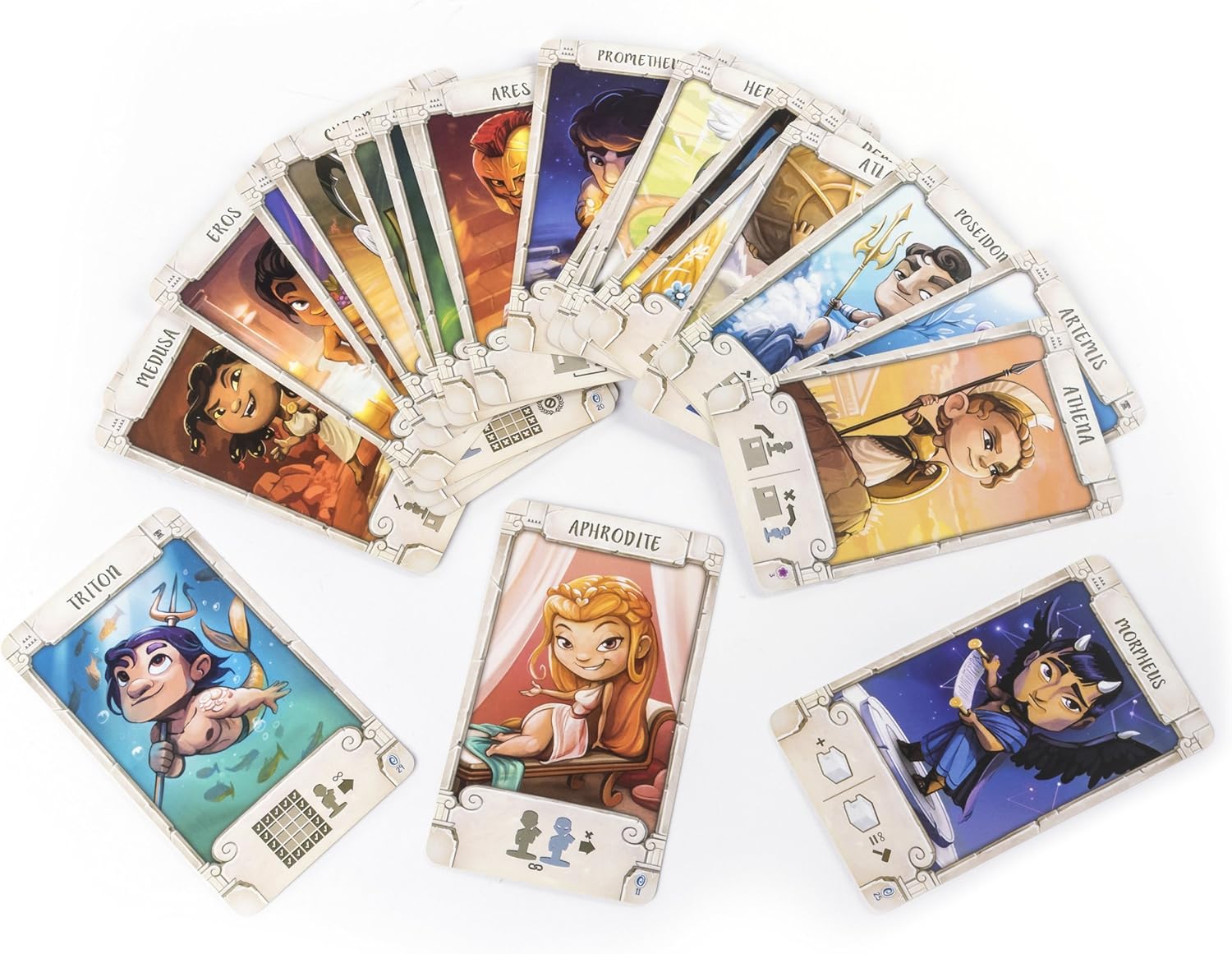
It’s safe to say that 2020 has been one of the stranger years in our lifetime. But hey, what better time to experiment and find new hobbies right? I have found the board game of Santorini to be one of my favorite pastimes. If you are into strategy games that stretch your brain, this is for you. Santorini boasts tremendous replay value due to the different scenarios encountered in each game.
Gameplay Overview
Santorini is designed for 2-4 players. The game begins by drawing a “God card” which is based on the Greek Gods. Each God possesses different abilities that interact with opposing God cards in unique ways. On every turn, the player’s character must move and build in that order. The end goal is to build a three-story tower and reach the top before the opponent. There are many ways for players to thwart their opponents. Anytime a third story is built, a player can put build a “dome” atop that tower, rendering it an unwinnable location.
Why You Should Get it
Due to each God card interacting with the opposition in unique ways, replay value is built. This factor leads to variance in each game due to the strategies which can be implemented with the use of each God card. I’ve come to realize that once you and your opponents have become well versed with the game it becomes very competitive and challenging to one-up the others. My favorite part is that the games will last roughly 20 minutes each. The competitor in me is glad that I can play multiple games in a session if I don’t win the first. Unlike losing in Monopoly… which results in the ending of friendships.
While Santorini is very easy to learn, it is also an incredibly strategic game. My favorite way to play the game is probably in the three-player variation. The game is very similar to chess from the standpoint of trying to plan several moves in advance and predicting what your opponent(s) will do. I think I enjoy the dynamic of the three-player matches because you can attempt to force your opponents into making moves that they would rather not do. For example, you can put yourself into an offensive position where you cannot stop an opponent from winning. As a result, the other player is required to go on the defensive to prevent a winning scenario.
Talking Strategy
Once you have gotten your feet wet and are familiar with the basics of the game, I’d refer back to this section.
If you have not played yet, I would recommend playing a couple of games to get a better understanding of the strategies I will speak of.
With many feasible strategies to win, the game becomes deeply intricate. After many… many sessions, I can say that I have definitely seen people win with almost every conceivable strategy. Some like to focus on corners of the board where they can attempt to block opponents from thwarting their strategy. Atlas is a master at this. But after numerous sessions with the same opponents, they will learn your strategies and implement counter measurements. Others have won by playing defensive the entire game and waiting for the end game to strike (Hermes, in particular, is best utilized in this fashion). Sometimes the power of the God card you have drawn will seem very ineffective in comparison to some of the others. For example, I find Minotaur to be one of the most useless cards in the game. But, man, believe me when I say this, those are the most satisfying wins. While a stalemate is technically supposed to be possible, I have not encountered that scenario after 100+ games.
How to Win
I believe that the most effective strategy in a 3-player game is to go up when possible (unless playing against Hypnus), but make the most neutral move possible as well. Santorini is so intricate that it is easy for an opponent to build a block in a sub-optimal area. It is then of the utmost importance that you can identify missteps and take advantage of opposing mistakes. With so many options each turn (there are technically up to 64 potential moves on the first turn, and the options stay open for a majority of the game.) it is difficult for your opponent to play a perfect game. Making the most neutral move possible lessens your chance of error. Every time your opponent makes a move they have a chance to make a mistake for you to capitalize on.
Another way to win is to draw the Athena God card… if you draw Athena, you win. You just win…
Pros:
- Variance (keeps each game fresh)
- Critical thinking & strategy
- Quick games
Cons:
- Balance (Some cards are significantly stronger than others)
In Conclusion, TLDR
Santorini is a board game that features quick games lasting roughly 20 minutes. The game is largely strategy based and can be played in games of 2-4 players. While the game is easy to pick up quickly, it is also largely intricate with the addition of “God cards”. Each God card gives you a different power that you can utilize throughout a match.







